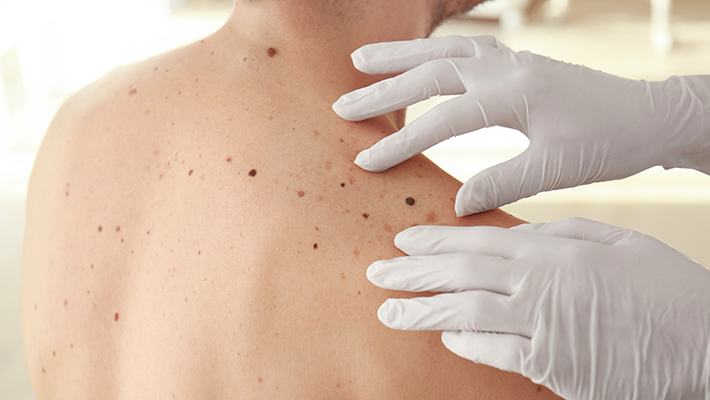The Daffodil Centre’s Deputy Director, Professor Anne Cust, has been awarded a $2 million grant from the National Health and Medical Research Council (NHMRC) to build evidence on tailored approaches to improve prevention and early detection of melanoma and other skin cancers.
Our national cancer
Australia has the highest rates of melanoma and other skin cancers in the world. Together, melanoma and skin cancer cost our health system around $1 billion annually – more than any other cancer – and costs are increasing rapidly.
Most skin cancers are preventable through sun protection and other sun-safe behaviours. Coordinated skin cancer prevention strategies, including the banning of solariums and sunbeds, have led to reductions in invasive melanoma incidence among young people, but incidence continues to increase for older Australians. When detected early, melanoma can be treated effectively leading to better outcomes for patient and lower treatment costs.
Current model of early detection
Unlike other common cancers such as bowel and breast, there is no formal screening program for skin cancer in Australia. The current model for early detection is largely ‘opportunistic’. Many people have skin checks routinely when presenting for other health concerns or to check a mole or spot. Many health professionals will also offer a skin check during consultations for other issues.
There are several concerns with this opportunistic model for early detection in including: lack of reminder and quality assurance systems; overdiagnosis and overtreatment; inequity in access; and health system inefficiencies.
Risk-tailored screening is the way forward
The latest Australian clinical practice guidelines for melanoma recommend risk-tailored approaches to prevention and early detection but high-quality research evidence is lacking, and the guidelines have not been routinely implemented. More research is needed to evaluate the effectiveness of targeted screening in those considered to be at higher risk for skin cancer.
Through the NHMRC Investigator Grant, Professor Cust will generate high quality evidence for tailored approaches to melanoma and skin cancer control and patient care, including evaluating the potential benefits, harms, cost effectiveness and implementation of a national melanoma screening program for Australia.
Professor Cust will engage clinical, consumer and policy stakeholders to ensure the research has an impact on clinical practice and cancer control efforts. Ultimately, this research will lead to improved health outcomes for the community and patients, and value for money for the health system.
Read more about the work of the Melanoma and Skin Cancer stream




